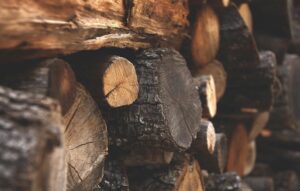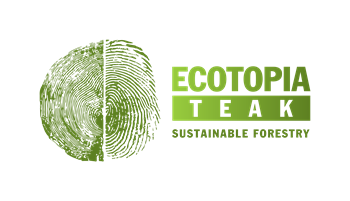
Panamanian Wood in Luxurious European Yachts
Traditional exports such as bananas and shrimp are being joined by other strong players, including palm oil, processed wood, and rum.

Since 2019, copper has strongly entered to give a new face to Panamanian exports, increasing from $1.339 billion to $3.303 billion in four years. However, beyond this metal, there is a wider and more diversified exportable offer.
According to Víctor Pérez III, President of the Panamanian Exporters Association (Apex), even in years of pandemic, exports have maintained a positive momentum.
The growth in the last year, excluding copper, was 18%, and between 2020 and 2022, it reached 34%, the highest figure in the last 12 years according to the Ministry of Commerce and Industries (Mici).
Among the products that have seen a strong increase in exports is palm oil, which rose from $15.5 million in 2017 to $45.8 million as of November 2022, according to statistics from the Statistics and Economic Analysis section of the Vice Ministry of Foreign Trade.
There has also been a boom in pharmaceutical exports, increasing from $3.2 million to $43.7 million in the mentioned period. Meanwhile, shrimp exports have recovered, reaching $58.2 million as of November 2022, with the first shipments going to the Bahamas.
Engineer Pérez III highlighted the evolution of the timber sector in exportation.
Previously, the exported timber was 100% raw material, in log form, to be processed in Asia. Now, it is being exported in cut form for specialized markets, such as yacht flooring in Europe.
The goal is for our export items, over time, to transition from exporting raw or raw materials to exporting processed or semi-processed products,» stated the President of Apex.
These numbers have helped to cover other traditional sectors that have not performed well in recent months, such as fresh bananas, which decreased by 14%, fish and fish fillets, with a 3.5% decline, and fish oils and fats, which fell by 37%.
The strength of the free trade zones
From a Free Trade Zone in Colón dedicated to re-exportation, other free trade zones are now focusing on processing raw materials and producing and exporting goods. This is happening in Panama Pacifico, Panapark in eastern Panama, and other locations in the interior.
«They are an engine for generating employment and reinforcing our export ecosystem,» said Pérez III.
An interesting case is the Pesé Free Trade Zone, where Flor de Caña rum, originating from Nicaragua, has established a center for strengthening its packaging and aging processes for export purposes.
«Panama is becoming a hub for rum packaging,» highlights the exporter, mentioning the experience of Ron Diplomático from Venezuela, which has its facility in Panapark, where the product is matured, packaged, and exported worldwide.
This has allowed rum to become an export product for Panama, with a 47% growth in the last four years, entering new markets such as Belgium and Portugal.
The role played by the free trade zones has led them to be included in Panamanian export figures.
According to preliminary figures from the General Comptroller’s Office, the exports of manufactured goods within the free trade zones and Panama Pacifico amount to $196 million.
This indicates that if these numbers are included, national exports without copper would reach around $989 million, close to the threshold of one billion dollars.
«The important thing is that local and foreign investment see that exporting from Panama is easy, that it is a country friendly to export processes, and that it requires work from the private sector to generate investment and take advantage of it,» emphasized the Apex executive.
Meanwhile, the Vice Ministry of Foreign Trade has reported that among the actions being taken to continue increasing exports are strengthening traditional exports and promoting the diversification of the exportable offer with added value.
According to Pérez III, it is a joint effort for the export sector to convey current and future needs regarding international market opportunities, while the government creates the necessary infrastructure and regulations to ensure that those opportunities are capitalized upon.

About us
Ecotopia Teak, S.A., we are a family-owned company dedicated to reforestation, harvesting, and exporting wood from commercial plantations. We work under high production standards and with social responsibility to obtain high-quality wood according to the needs and demands of national and international markets. Additionally, we actively contribute to the local economy by creating employment opportunities in the communities where we operate. Our commitment is to lead the industry in sustainable reforestation and wood production, preserving our natural resources and building a greener and more sustainable future.


